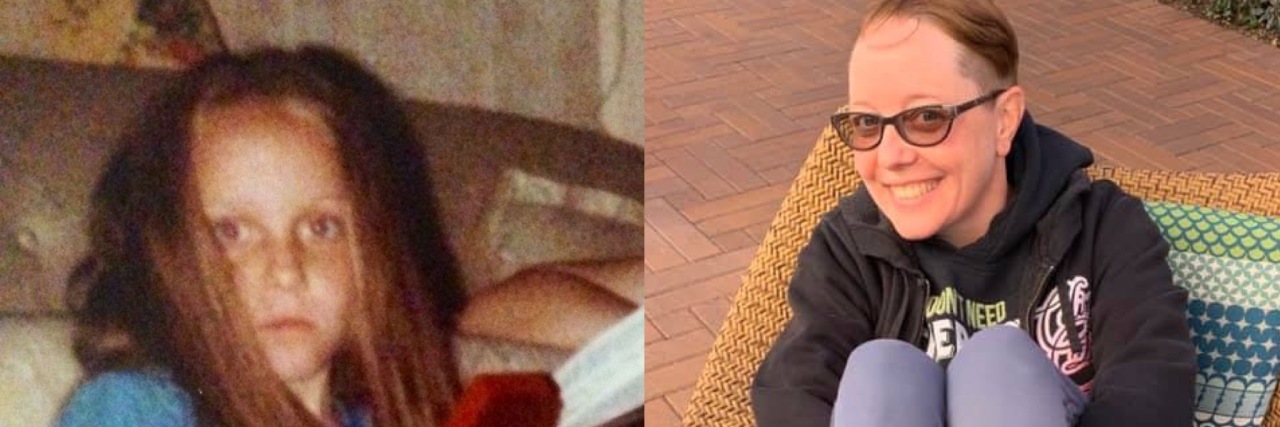3 Ways to Educate Your Kids About Child Sexual Abuse
Editor's Note
If you’ve experienced sexual abuse or assault, the following post could be potentially triggering. You can contact The National Sexual Assault Telephone Hotline at 1-800-656-4673.
My name is Monika Sudakov and I am a survivor of child sexual abuse. I feel compelled to share some of my thoughts about the epidemic that is child sexual abuse in an attempt to normalize discussing it. I’m also hoping to convince parents and others who have children in their lives whom they love to not shy away from addressing the 2,000 pound elephant in the room. Make no mistake, this is an epidemic. According to the Centers for Disease Control and Prevention (CDC) 1 in 4 girls and 1 in 13 boys will experience child sexual abuse at some point during their childhood. That’s not OK.
I myself was abused between approximately the ages of 8 and 11 by two different individuals, an older childhood friend and my step-grandfather. The lingering affects of my abuse have permeated every aspect of my life. Besides having PTSD and anxiety, I struggle with trust issues, intimacy, self esteem and anorexia. I’m a 43-year-old woman who has been in therapy for almost five years to try to heal from something that could have been prevented.
Parents easily address the issue of “stranger danger” with their children because it’s a lot easier to fight a foe that doesn’t really exist. However, 90 percent of sexual abuse of minors occurs at the hands of individuals that the child or the child’s family know well, according to the CDC, and that’s a far more terrifying thing to think about.
But think of the alternative. It may feel overwhelming to tackle the subject of sexual abuse with children, but I promise they can handle it. What they cannot handle is being sexually abused. And this is what I hope to convey to you with my message.
I don’t care about your political beliefs, religious beliefs, socio economics, sexual orientation, race, ethnicity or cultural background. Sexual predators do not discriminate and children from all walks of life are equally vulnerable.
So what can you do? Prevention begins at home with education.
There are a myriad of resources available online and through schools and abuse shelters to help parents facilitate these tough conversations. Resources are tailored toward age appropriate discussions beginning as early as 3-4 years of age, and continuing on through elementary, junior and high school age kids. People of all walks of life can find the resources they feel comfortable with using and that fit within their own sensibilities.
I do encourage three very basic and fundamental points to cover no matter what resource you choose.
1. Children need to know the correct names for their genitalia.
This is simple anatomy, not sexual and can provide them with specific language they will need to tell you if someone has touched them inappropriately.
2. Children need to be made aware of “good touch” versus “bad touch.”
Children should know what is considered private and therefore only to be touched by themselves, parents in cleaning and doctors under parental supervision and with a child’s consent.
3. Children need to know who their trusted “safe people” are.
These are family members, friends, teachers, coaches or religious leaders whom the child can go to should anything happen to them without feeling scared or like they will be punished.
Child sexual abuse can be prevented and eradicated if we simply begin having these hard conversations. It is up to us to set the stage for a future where sexual predators can no longer get away with perpetuating their crimes, because all of us are watching out for our children and empowering them to stand up for themselves.
Are you with me?
If so, please share this with anyone you know. Help spread the message that there’s no stigma to discussing sexual abuse. We owe it to our children to make this world a safer place.
Photo submitted by contributor.

